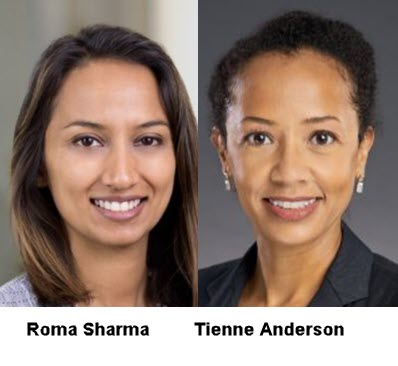Abstract
Excerpted From: Roma Sharma and Tienne Anderson, The Promise and Peril of Advancing Health Equity Through Artificial Intelligence, 35 No. 6 Health Lawyer 23 (August, 2023) (99 Footnotes) (Full Document)
 Today, whether a child survives cancer depends, in large part, on where that child lives. Children with cancer in high-income countries (HIC) have an over 80% chance of survival. That rate is flipped for children in lower- and middle-income countries (LMIC), where children with cancer have an 80% chance of mortality. This statistic is especially devastating considering that worldwide, more than 90% of children with cancer live in LMIC. Artificial intelligence (AI) has the potential to drastically affect this survival disparity and impact other health inequities in a multitude of ways, presenting a unique opportunity to alter the trajectory of humankind. The direction of that change rests upon the intentionality by which we invest in and use AI to address healthcare inequality and the manner in which governments ultimately regulate this technology of infinite possibility. Failure to harness this technology for good and manage its risks may undermine the foundational principles of medicine and exacerbate inequities that drive health disparities around the world.
Today, whether a child survives cancer depends, in large part, on where that child lives. Children with cancer in high-income countries (HIC) have an over 80% chance of survival. That rate is flipped for children in lower- and middle-income countries (LMIC), where children with cancer have an 80% chance of mortality. This statistic is especially devastating considering that worldwide, more than 90% of children with cancer live in LMIC. Artificial intelligence (AI) has the potential to drastically affect this survival disparity and impact other health inequities in a multitude of ways, presenting a unique opportunity to alter the trajectory of humankind. The direction of that change rests upon the intentionality by which we invest in and use AI to address healthcare inequality and the manner in which governments ultimately regulate this technology of infinite possibility. Failure to harness this technology for good and manage its risks may undermine the foundational principles of medicine and exacerbate inequities that drive health disparities around the world.
This article will examine the potential impact of AI on health equity and highlight approaches that should be considered as AI regulations are developed. First, this article briefly describes the fundamental concepts of AI and health equity and some of the challenges that lay at their crossroads. Next, this article provides an overview of various representative legal and regulatory approaches to AI around the world with a view towards healthcare. Finally, it discusses key concepts that should guide the development and regulation of AI to promote health equity: representative data, strengthening political will, accountability and transparency, and elevating marginalized voices. The conclusion proffers two paradigms for consideration in designing a framework for the use of individual health data by AI: data as a common good and data as a personal asset. Such paradigms, or elements thereof, may be considered to balance individual control with reliance on corporate responsibility for the appropriate collection and use of such data by AI systems.
[. . .]
Ready or not, AI has taken off exponentially, and perhaps may ultimately surpass human intelligence. Global AI regulation, which is in its infancy--must develop at an unprecedented pace, with global collaboration and alignment, to appropriately grapple with numerous ethical, legal, business, and policy implications of AI's promise and potential peril. To support the advancement of health equity to its fullest potential, all stakeholders must work together; deidentified health data must be readily available for analysis by the public and private sectors; such data must be representative of all populations, with particular attention and efforts made to gather data on marginalized populations; and such data must be transparently managed and protected, with the fruits of the data's analysis distributed and accessible to all. AI necessitates collective collaboration and perhaps, a reorientation of healthcare and education as common goods, to fulfill our collective highest potential and avoid widening existing economic and health disparities across the globe.
Roma Sharma is counsel in Crowell & Moring's Washington, DC, office and is a director in Crowell Health Solutions, a strategic consulting firm affiliated with Crowell & Moring.
Tienne Anderson is managing counsel at St. Jude Children's Research Hospital in Memphis, TN.


